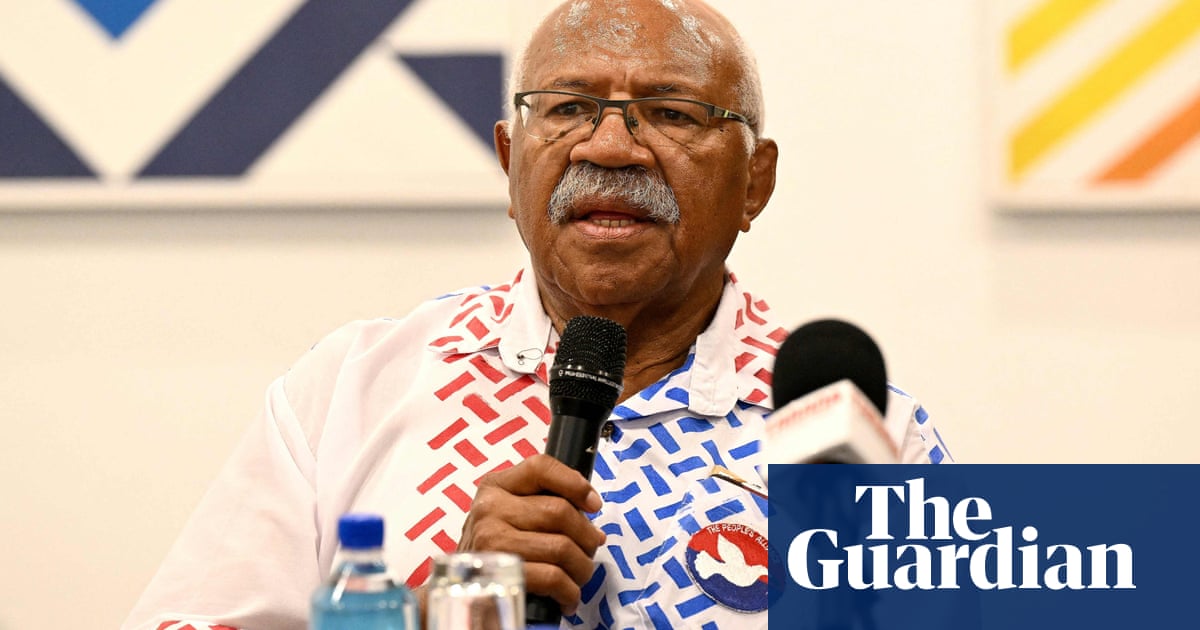
The Pacific islands should be a “zone of peace”, Fiji’s prime minister, Sitiveni Rabuka, has said, adding that he hopes a rivalry between the US and China in the strategic region does not develop into a military conflict.
Rabuka was speaking after attending a summit meeting of several Pacific island leaders, where climate change and regional security dominated the agenda. The leaders of Papua New Guinea, Solomon Islands, Vanuatu, Fiji and New Caledonia’s ruling FLNKS party met in Vanuatu on Thursday.
The Melanesian Spearhead Group leaders have yet to publicly release a joint declaration on regional security that was signed at the summit, however Rabuka said discussions focused on the rivalry between the US and China in the region.
“They are trying to polarise the Pacific into their own camps, so we have to be very certain that whatever we do, we are mindful of the collective need of the Pacific to be a zone of peace, a zone of non-aligned territories,” he said in a video statement released by Fiji’s government on Friday.
“Hopefully that will not develop into military conflict or military jealousies that will see a build up of military forces or weapons in the area,” he added.
The five countries, strategically located in the South Pacific and pivotal during the second world war, are again at the centre of a geopolitical contest: Solomon Islands has a security pact with China, Papua New Guinea signed a defence cooperation deal with the US, while Fiji last week co-hosted an Indo-Pacific defence chiefs’ conference with the US, which China attended.
Vanuatu’s prime minister, Ishamel Kalsakau, has faced a political backlash for signing a security deal with US ally Australia, after some lawmakers feared it could upset China, Vanuatu’s biggest external creditor.
Vanuatu’s supreme court is due to make a ruling on Friday on whether a no-confidence motion against Kalsakau won enough support to unseat him.
Rabuka said concern about Japan’s discharge of water from the wrecked Fukushima nuclear power plant was also discussed by MSG leaders. In Fiji, a protest march was held in the capital, Suva, against the discharge.

